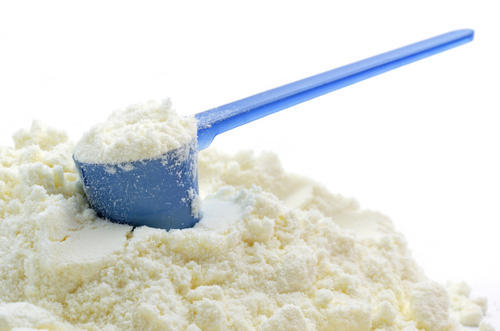Milk powder importers of Sri Lanka have made a collective request from the Consumer Affairs Authority (CAA) to increase the prices of imported milk powder to reflect the rupee depreciation-led losses suffered by the industry, The Sunday Morning Business reliably learns.
In a price increasing application sent to the CAA a month ago, milk powder importers have requested to increase the price of a kilogramme of imported milk powder by Rs. 60-70. The request has not yet received any positive response from the Government.
Well-placed industry sources told The Sunday Morning Business that importers are now planning to have a meeting with the CAA this week, where they could discuss matters pertaining to the prices of imported milk powder and arrive into a mutual agreement.
“Generally, the CAA sends a response within a month saying they have studied the costing, recommending us to increase or maintain the price. What we are trying to do now is to have a discussion with them because some of the costs are on the rise,” our sources noted.
The request for an increase, according to sources, has been made mainly due to the increase of the dollar value even though Covid-19 has not caused any significant impact to their businesses. The Sri Lankan rupee depreciated at a dramatic rate, especially since March this year.
It is notable that the increase in local milk powder prices, which are usually less than imported milk powder prices, on 1 May brought their prices on a par with the prices of imported milk powder.
The industry is also requesting the Government to introduce a proper scientific mechanism or pricing formula for imported milk powder to reflect the global milk powder prices locally as well as to ensure periodic revisions without the intervention or requests from the industry to do so.
“With this new Government, we think it is better if we get into a formula. Post election, we are confident in getting a formula from the Government because it is better to have a formula as there would be no need for people to send applications because the Government can do the reviewing part and then they can give a determination. Prices can be increased or reduced and it will be done transparently,” sources added.
Furthermore, the industry believes that the prices of imported milk powder should be increased by a minimum of 5% every year and noted that the industry is not in favour of having price controls for imported milk powder.
“Having price controls in a country like Sri Lanka is hard as we are a developing and progressing country. Price controls are not good; there has to be a much better mechanism. Healthy competition should be there,” sources added.
The last revision in imported milk powder prices was made in December last year where the price of a 1 kg pack of imported milk powder was reduced by Rs. 40 while the price of a 400 g packet was reduced by Rs. 15. This revision was made to reflect the reduction of the Value-Added Tax (VAT) and the National Building Tax (NBT) announced by President Gotabaya Rajapaksa in November.
The last time imported milk prices were increased was in September by the former Government and it was made under a milk pricing formula. In September 2019, the price of a 1 kg pack of imported milk powder was increased by Rs. 50 and the price of a 400 g packet was increased by Rs. 20.
Industry sources noted that the milk powder pricing formula that was in use at that point is a trial formula for a period of one year and it is no longer in use, adding that it was anyway complicated and there was a need for a simpler formula. Even though the new Government has not seen implementing the formula periodically, it is still unclear whether they have given upon it or not.
A pricing formula for imported milk powder was approved by the Cabinet in September last year to depoliticise pricings. The formula was said to be revised every quarter based on global price fluctuations. However, the former Government was able to revise the prices only once under the formula as a new Government was elected two months later, just before the end of a quarter.
The country’s imported milk powder industry consists of about six players. According to then State Minister of Industry and Commerce, Resettlement of Protracted Displaced Persons, Co-operative Development, Vocational Training, and Skills Development Buddhika Pathirana from 2010 to mid-2019, Rs. 362.753 billion was spent to import milk powder.
Central Bank data states that in 2018, the total milk production in Sri Lanka increased by 19% to 471.6 million litres, compared to 396.2 million litres in 2017. Cow milk production increased by 17.7% to 385.7 million litres, while buffalo milk production increased by 25.3% to 85.9 million litres in comparison to 2017.
(The morning)

